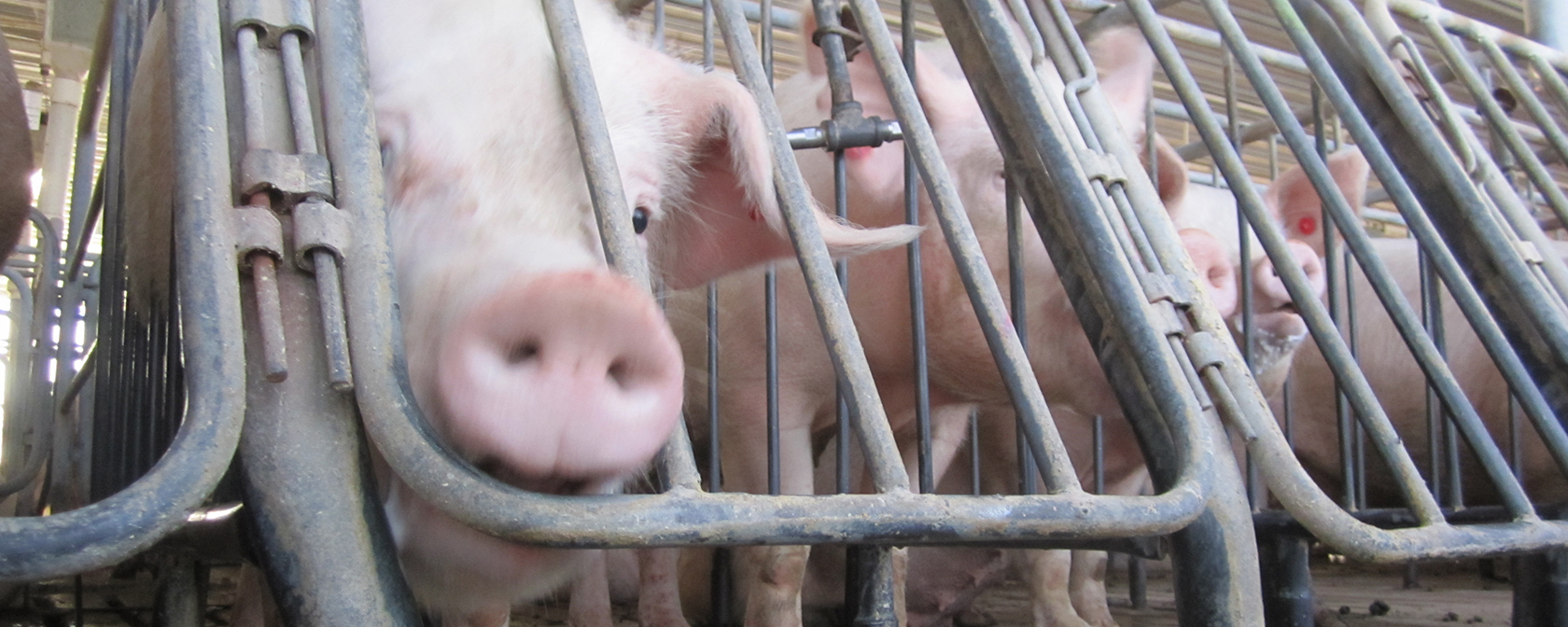By Sara Amundson and Kitty Block
This week, a court rejected an attempt by Smithfield Foods to dismiss the Humane Society of the United States’ lawsuit against the company for misrepresenting to customers how it treats mother pigs in its pork supply chain. This ruling means our case can go forward to trial.
Like some other big pork companies, Smithfield uses gestation crates for the female pigs who produce litter after litter of piglets. Those piglets are raised and killed to produce the bacon, ham and other pork products found in stores and restaurants. These crates are barely larger than a pig’s body, and their use is incredibly harmful to the welfare of these intelligent, sensitive animals. The crates cage individual animals so tightly that the pigs are unable to even turn around or take more than a step forward or backward. As consumers have learned about this practice, they have rightfully started to demand an end to it.
Our lawsuit alleges that Smithfield has misrepresented to its consumers that it eliminated gestation crates for pigs in its supply chain. That is what Smithfield promised back in 2007, which we at the time applauded. Starting in 2018, Smithfield claimed to have achieved its promise by converting to a “group housing” system on its farms for mother pigs. In reality, Smithfield is using an approach that cycles mother pigs between crates and group housing, keeping pregnant pigs in immobilizing crates for weeks prior to “confirming” their pregnancy.
We believe it’s misleading to consumers for Smithfield to publicly claim it has met its promises, and to use our past support for its promises as a marketing tool, when it continues to lock mother pigs in inhumane gestation crates. In response to our lawsuit, Smithfield argued that in some company statements it had described its continued confinement of mother pigs in crates, and therefore it did not mislead consumers. So, Smithfield asked the court to dismiss the case.
The District of Columbia Superior Court denied Smithfield’s motion in full. The court agreed with us that Smithfield’s various statements about eliminating the use of such crates, and about our praise for its earlier promises “could mislead a reasonable consumer to believe that [Smithfield] no longer uses [gestation] crates during the breeding process which it admittedly still does.” The judge also rejected all of Smithfield’s other legal arguments for dismissing the case.
This win means the case will now move forward toward a trial under D.C.’s consumer protection law. Smithfield cannot continue to falsely claim that it has met its animal welfare commitments when it has not. We will continue our fight in court, led by the HSUS’ Animal Protection Law department, to show that Smithfield misrepresented its use of gestation crates to the public. Big agriculture cannot dodge the fact that people care about how farm animals are treated.
This case is not our only fight in the courts relating to the cruel confinement of farm animals. Just this month, the Supreme Court heard arguments on California’s Proposition 12, a landmark law passed in 2018 that bans the extreme confinement of mother pigs, egg-laying hens and calves raised for veal in California, and outlaws the sale in the state of pork, eggs and veal sourced from extreme confinement. The lower federal courts already ruled in our favor and upheld Proposition 12, and we await the Supreme Court’s decision—hopefully, in favor of the pigs.
Kitty Block is CEO of the Humane Society of the United States.
